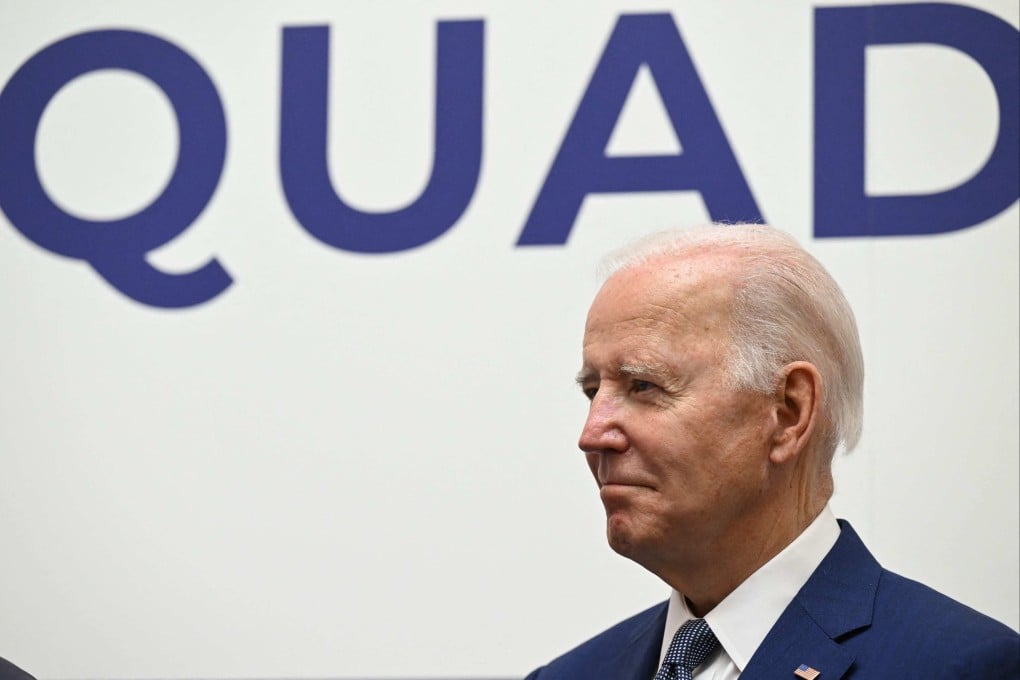US parties find unity in Quad’s potential to counter China in the Indo-Pacific
Washington promises ‘tangible deliverables’ from summit on maritime security that will almost certainly anger Beijing

From his first year in the Oval Office, Biden elevated the Quadrilateral Security Dialogue grouping to head of state level and made annual meetings of the group’s leaders an annual fixture.
Republicans seem to like it so much, they are demanding more. Crucially for US politicians of nearly all stripes, the Quad seeks to counter the more widespread presence that Beijing has taken in the Indo-Pacific.
While the two parties have often been at odds over many areas of foreign and trade policy, with tariffs and support for Ukraine emerging as key election issues, the point of contention over the Quad is not its existence, but how muscular it should be.
As Anthony Albanese, Fumio Kishida and Narendra Modi head to Biden’s seaside hometown of Rehobeth, Delaware for the Quad’s fourth in-person summit on Saturday, analysts expect agreement on measures that will almost certainly anger Beijing.
